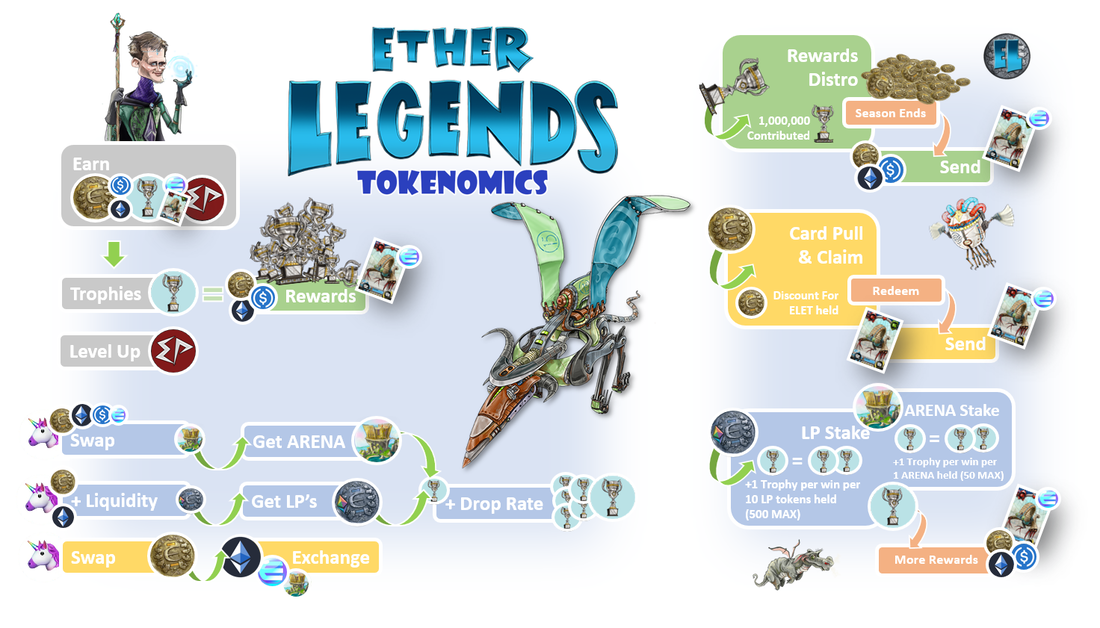Southeast Insights
Your go-to source for news and information from the vibrant heart of Shenyang.
Tokenomics Unplugged: How Digital Currency is Reshaping the Gaming Landscape
Discover how tokenomics is revolutionizing gaming! Explore digital currencies' impact on play, profits, and player power in our latest post.
Understanding Tokenomics: The Fundamental Building Blocks of Digital Currency in Gaming
Tokenomics is a crucial aspect of the digital currency landscape, particularly in the gaming sector. It encompasses the economic models, incentives, and governance structures that underpin the creation, distribution, and use of tokens within gaming ecosystems. Understanding the fundamental principles of tokenomics can help players, developers, and investors navigate the complexities of decentralized gaming finance. The design of a token's economic framework is essential, as it directly affects player engagement, in-game transactions, and the overall health of the gaming ecosystem.
At its core, tokenomics consists of several key components, including token supply, utility, and incentive mechanisms. The supply of tokens can be fixed or inflationary, affecting their scarcity and value over time. Utility refers to how tokens can be used within the gaming world, such as for purchasing in-game items, unlocking features, or participating in governance. Lastly, incentive mechanisms are critical for driving user participation and loyalty, ensuring that players are rewarded for their contributions to the game. By grasping these elements, stakeholders can leverage tokenomics to create thriving, sustainable gaming environments.

Counter-Strike is a highly competitive first-person shooter game that has gained immense popularity since its release. Players engage in team-based missions, where they can choose to play as terrorists or counter-terrorists. Many gamers look for ways to enhance their gaming experience, such as through a bc.game promo code that can offer exciting in-game benefits.
How Blockchain Technology is Revolutionizing Player Ownership and In-Game Assets
Blockchain technology is fundamentally transforming the landscape of player ownership and in-game assets. Traditionally, players in the gaming industry have had limited control over the digital items they acquire. These assets, often locked within centralized servers, can be taken away by game developers or become worthless when a game is discontinued. However, with the advent of blockchain, players can now truly own their in-game assets. By using blockchain's decentralized ledger, players can buy, sell, and trade their items securely without relying on a third party. This shift not only enhances player agency but also creates a vibrant marketplace where scarce items can appreciate in value.
Moreover, blockchain technology introduces the concept of true scarcity to digital assets. With methods like non-fungible tokens (NFTs), each in-game item can be uniquely identified and verified on the blockchain. This innovation ensures that players have access to provably scarce items, providing potential investment opportunities as the gaming economy evolves. As game developers begin to recognize the value of decentralization and player ownership, we can expect to see a surge in blockchain-based games that prioritize these features, creating a more engaging and rewarding experience for players around the world.
Is the Future of Gaming Cryptocurrency? Exploring the Benefits and Challenges
The intersection of gaming and cryptocurrency is an exciting and rapidly evolving landscape that raises the question: Is the future of gaming cryptocurrency? As blockchain technology becomes more mainstream, it offers numerous benefits for both players and developers. For players, the integration of cryptocurrency can enhance the gaming experience through ownership of in-game assets, allowing users to trade or sell items securely. Additionally, it provides opportunities for players to earn rewards through play-to-earn models, creating a new economic incentive within the gaming ecosystem. Moreover, the decentralized nature of blockchain can safeguard against fraud and hacking, offering a more secure environment for transactions.
However, there are also significant challenges that must be addressed for gaming cryptocurrency to reach its full potential. Scalability issues can lead to slow transaction times and high fees, which may hinder user adoption. Furthermore, the environmental concerns surrounding some cryptocurrencies—due to their energy-intensive mining processes—pose ethical dilemmas for developers and gamers alike. Additionally, the volatile nature of cryptocurrencies can create unstable economies within games, leading to potential disillusionment among players. As we explore the future of gaming intertwined with cryptocurrency, it is crucial to weigh these benefits and challenges in pursuit of a balanced and sustainable gaming framework.